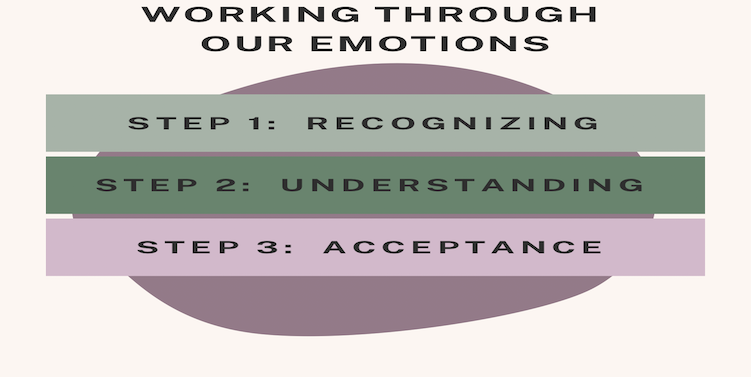
Written by Jennifer Cox LCPC
One of the most important aspects of treatment is recognizing that emotions will come and go in life, and yes some may be uncomfortable.
In counseling we work on recognizing, making sense of the emotions, and learning acceptance by utilizing skills such as:
*Recognizing: Extreme emotions can lead you to feel overwhelmed by a situation or an environment.
Mindfulness helps us become more aware of our thought patterns, our emotions, and how our thoughts and feelings affect our reactions to events. With mindfulness we engage in the following without judgment:
-Observe
-Describe
-Participate
*Understanding, making sense of it all: When in the emotional mind, we tend to overreact. However, by reacting more rationally and seeing things as they are, we can understand them more.
-Primary emotions are the initial reaction to an event or environment.
-Secondary emotions are the reaction to your primary emotions or thoughts.
Primary emotions are often completely natural reactions to things around us, like being angry when someone is rude to us. However, secondary emotions are more within our control. We generally have more of a choice about how to respond to the fact that we are angry that someone was rude.
Questions to ask yourself:
-What is another way of looking at this situation?
-What would a trusted friend say to me right now?
-Is this thought a fact or an opinion?
-What is a more reasonable explanation or response?
*Accepting our emotions: We may feel we have no control over our emotions since they appear out of nowhere at times. However, we have a lot more influence over how we feel than we think. Emotional regulation skills allow us to manage and direct our emotions.
We have a tendency to become stuck, obsessing over every little experience and wondering why it’s happened vs attempting to accept the emotions. The act of accepting that we are feeling emotions, can be the key to letting go of them. When we accept our emotions, we stop trying to figure out all the answers that might not be there and running from the difficult emotions. The following could help with acceptance:
-Observe your emotion, acknowledge that it exists.
-Try to experience your emotion as a wave, coming and going, concentrate on some part of the emotion, like how your body is feeling or something about the situation.
-Recognize that you are not your emotion, your emotion is part of you, but it is not all of you.
-Do not necessarily act on the emotion, having the emotion does not mean that you have to act.
-Lastly, accept that we can’t change this experience or situation and identify what is in our control.
If our emotions become too overwhelming, leaving us having difficulties functioning in our day to day life, then we may need to find a better way to find balance and control.
Are your emotions dominating your life or getting in the way of you leading a fulfilling life – We can help you identify, understand your emotions, and learn acceptance to gain control over your life.
Talking with a mental health professional could help with this process.
Reach out today at info@echcounseling.com or 815-363-0864.

